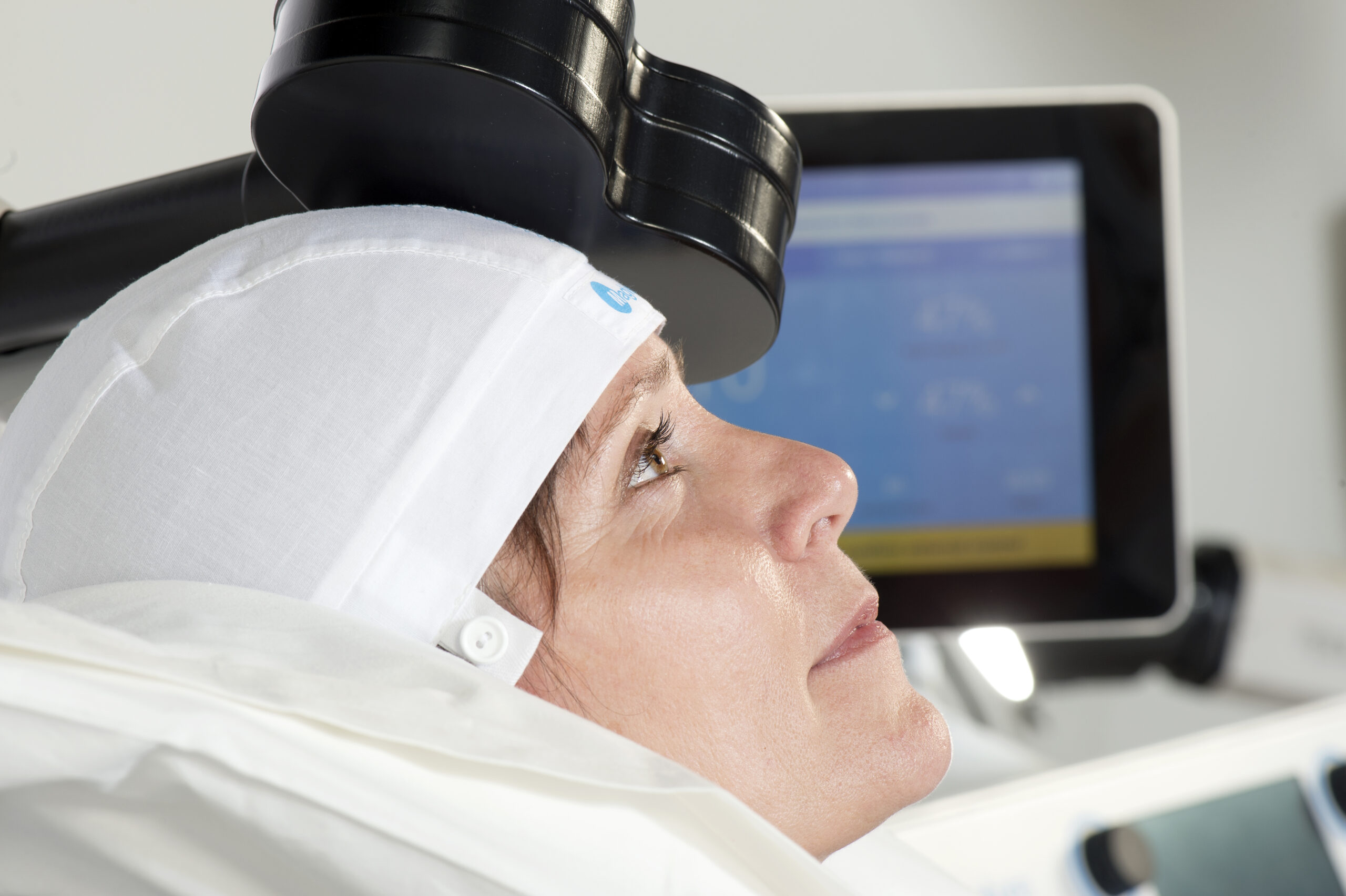Comprehensive Mental Health Support for Military Personnel
At Olympia Center for TMS and Psychiatry, we recognize the profound and unique mental health challenges faced by military personnel.
Our approach
We at Olympia TMS fully understand the complex and often multi-layered issues related to military service. That’s why we begin with a thorough intake appointment that typically lasts 2 hours. This extended time allows us to understand each individual’s unique needs in order to develop a corresponding comprehensive treatment plan.

Unlike traditional pharmacological antidepressant therapy, TMS allows for the treatment of depression, without the associated unpleasant side effects, such as decreased libido, weight gain, and emotional blunting (inability to experience the full range of human emotions such as joy and happiness).

Our Expertise
Our centers treat military personnel from all branches, backgrounds, and ranks. Our specialty, however, lies in addressing the specific needs of those who have served in the armed forces. We are proud to have one of the most experienced outpatient military treatment teams in the state of Washington.
Our providers are deeply familiar with the unique obstacles that military personnel face, and they are dedicated advocates for our patients. We understand the sensitivity around mental health issues and their treatment within the military community.
We strive to de-stigmatize addressing these issues to create a safe, supportive, and understanding environment.
Addressing PTSD
Post-Traumatic Stress Disorder (PTSD) is a serious issue, prevalent among military personnel. Exposure to combat and other traumatic and life-threatening situations can often lead to PTSD. These can manifest in symptoms such as flashbacks, severe anxiety, nightmares, and uncontrollable thoughts about the traumatic event. The stigma surrounding PTSD and mental health issues within the military can make it incredibly difficult for service members to acknowledge their struggles, let alone seek treatment.
Transcranial Magnetic Stimulation (TMS) offers a groundbreaking, non-invasive treatment option for PTSD. TMS targets specific areas of the brain involved in mood regulation and fear response. By stimulating these regions, TMS can help reduce symptoms of PTSD, providing significant relief and improving the overall quality of life for those who have served.
Our experienced providers tailor TMS treatments to each patient’s unique needs, ensuring the best possible outcomes.
- Flashbacks and vivid memories of the event
- Nightmares or intrusive, uncontrollable thoughts related to the trauma
- Anxiety and panic attacks when reminded of the trauma
- Hypervigilance and jumpiness
- Loss of motivation and pessimism
- Social withdrawal, feeling detached, or avoidance behaviors
- Trouble concentrating or remembering things
- Engaging in destructive or self-destructive behaviors
- Dependencies on or misuse of alcohol, drugs, or other behaviors
During a TMS session
An electromagnetic coil is placed over the patient’s head and delivers strong pulses into the brain that can stimulate neurotransmitters. With the help of TMS, depression symptoms are targeted and relieved. TMS is pain-free and does not require sedation.
Transcranial Magnetic Stimulation (TMS) offers a groundbreaking, non-invasive treatment option for PTSD. TMS targets specific areas of the brain involved in mood regulation and fear response. By stimulating these regions, TMS can help reduce symptoms of PTSD, providing significant relief and improving the overall quality of life for first responders. Our experienced providers tailor TMS treatments to each patient’s unique needs, ensuring the best possible outcomes.
Learn more by reading our TMS FAQs.

Combatting Depression
Depression is another common and serious issue among military personnel. Whether due to the stresses of deployment, the transition to civilian life, or other service-related experiences, depression can deeply affect a person’s life. Symptoms of depression include persistent sadness, loss of interest in previously enjoyed activities, fatigue, and difficulty concentrating. These symptoms can be debilitating and are often resistant to traditional treatments.
TMS therapy has proven to be highly effective in alleviating symptoms of depression, especially in cases where other treatments have failed. Through regular sessions, TMS helps restore balance in brain activity, leading to improved mood and better overall functioning. Our team of experts is committed to providing a supportive environment where military personnel can receive the care they need without fear of stigma or judgment.
- Depression affects 20% of veterans.
- Suicidal ideation or attempts occur in 11% of veterans.
- In veterans who use drugs, the rates of suicidal ideation and attempts are 18% and 30%, respectively.
Questions?
If you have any questions please call (360) 539-1736 or message us and we’ll be glad to answer any questions and schedule an appointment.
Patient-Centered Care
At Olympia Center for TMS and Psychiatry, we prioritize the comfort and well-being of our patients. Our team moves at a pace that is comfortable for the patient, never forcing treatment modalities.
We provide comprehensive support and education, empowering patients to make informed decisions about their treatment options. Our goal is to help each individual achieve optimal mental health and well-being.
Contact Us
If you have any questions or would like to schedule an appointment, please call us at (360) 539-1736 or MESSAGE US.
At Olympia Center for TMS and Psychiatry, we are dedicated to providing the highest quality of care for our military heroes. We understand the sacrifices you have made, and we are here to support you every step of the way on your journey to mental wellness.
TMS is FDA Approved
The current use of electromagnetic induction for transcranial stimulation dates back to 1985. Dr. Tony Barker and his colleagues invented the initial type of TMS in Sheffield, UK. Moreover, Barker scientifically proved the influence of magnetic stimulation on the motor cortex of the human brain in 1985.
In 2002, the Canadian Association of Health approved the medical results and benefits of TMS. Many devices are available for repetitive electromagnetic stimulation. Olympia Center for TMS & Psychiatry, uses the MagVita TMS Treatment System with Theta Burst Stimulation.
The Food and Drug Administration of the United States granted approval for TMS as a treatment for depression on October 8th, 2008.
